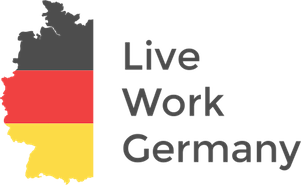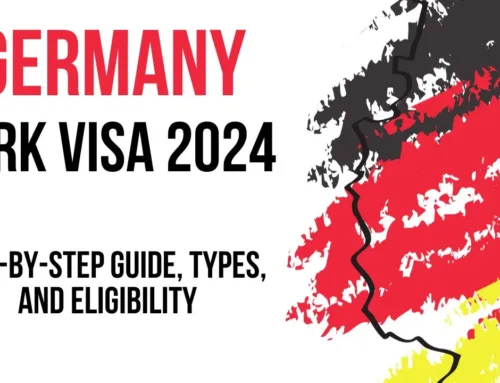living And Working In Germany As a Foreigner With a Chancenkarte
living And Working In Germany As a Foreigner With a Chancenkarte
Professionals from all over the world love to work in Germany because it has a strong economy, a high standard of living, and a lively culture. The Chancenkarte, which is also sometimes called the Opportunity Card, provides a roadmap to live and/or work in Germany. This visa is especially helpful for professionals who want to find work in Germany. This essay talks about what life might be like for professional workers in Germany on a Chancenkarte and discusses important issues like finding an accommodation to live, understanding work culture, and getting used to German living.
Life in Germany for Skilled Workers
Workers in Germany can learn about the country’s rich cultural past, live a great life, and use top-notch public services. You can use a lot of guidance and help that will help you fit in better as a German citizen with a Chancenkarte. This guide will help you with everything, from the housing accommodation to the knowledge of German work culture.
1. Finding Accommodation:-
There are a lot of people looking for places to stay in big towns like Berlin, Munich, and Hamburg, so one of the first things you’ll have to do when you get there is find a good place to stay. Here are some tips that will help you get through the whole process of finding a house.
- Start early: Start the search process early. The rental market in Germany’s cities is very competitive, so taking an early start is very important.
- Search online: Websites like Immobilienscout24, WG-Gesucht, and Immowelt can help you find shared apartments, flats and a lot of other types of homes.
- Learning about rental agreements: You will have to enter into a rental contract. A Mietvertrag is a long contract that highlights your rights and duties when it comes to renting a contract. You should be ready to sign it. Most of the time, landlords need to see proof of income, a report of the tenant’s rental past (Schufa), and a security deposit equal to three months’ rent.
- Find out about different kinds of housing: Shared accommodations, also known as Wohngemeinschaft or WG, is a popular and cheap way for newcomers to Germany to meet locals.

2. Knowing about work culture:-
To be successful in Germany, you need to follow the local work style. The way people work in Germany is structured, professional, and has a formal air to it. Remember these important things:
- Always be punctual: The German people admire punctuality. It is assumed that you will be early to work, meetings, and social events. Being late is considered rude when you’re in a work setting.
- Work-life balance: keeping a good work-life balance is very important for your health, family and career. Keeping your work life separate from your personal life is highly valued, and a lot of companies offer great holiday packages. This makes sure that workers get the rest they need, which will make them more productive.
- Direct communication: Germans are known for being straightforward and honest when they communicate. Since the goal is constructive criticism, don’t be shocked if the answer is straight. People like it when you talk straight to the point.
- Hierarchical Structure: People in Germany are known for working together, but there are often clear roles and responsibilities in the workplace. When you work for a big company, it’s especially important to know your place in the hierarchy and take your duties seriously.
3. Blending in with German life:-
Leaving your home country can be an exciting and difficult journey. Germany has a lot of different customs and traditions, some of which might seem strange at first. Finally, you’ll be able to get used to your new job and enjoy your time in Germany to the fullest.
Following things can help:
- Learn the language: Even though a lot of Germans speak English, especially in bigger towns, learning German would make your daily life a lot easier. It would help you professionally, and it would also help you connect with people in your home town and learn more about their culture. You might want to look into language lessons or apps if you want to get better at German.
- Learn how to use public transportation: In Germany, you don’t need a car to get around because their public transportation is so good. Learn about the train system, tram, and local bus. Most of the time, an annual or monthly conveyance pass will save you money, especially if you plan to travel every day.
- Medical insurance: If you want to live in Germany, you need health insurance. It can be public or private. The names of the vast majority of workers are put into the public system right away, which gives a lot of information. Some people can also get private insurance, which can offer new perks from time to time.
- Learn Social Etiquette: The way people behave in Germany might be different from your norms. When thanking someone, it is polite to shake hand with them and use their last name and title when talking to them, unless they tell you otherwise. It’s also important to pay attention to quiet times (Ruhezeit) and value personal space.
4. Finding Job Opportunities:-
The Chancenkarte’s main job is to make it easier for skilled labour or professionals to come to Germany for work. Here are some great ways to enjoy this opportunity:
- Socializing: Socializing in your environment is crucial. Going to seminars, conferences, and networking events in your field is a great way to meet possible employers and learn about job openings. Professional groups and networking sites like LinkedIn are two more things you can do to make friends.
- Use Job Boards: Many German businesses use online job boards to let people know about open positions. In fact, some of the most well-known websites are Chancenkarte.info, Step Stone, and LinkedIn. If you need help with translation, get some service for it. Make sure that your cover letter and resume are tailored to the German job posting.
- Recruiting Companies: If you have certain skills that are in high demand, expert recruitment agencies can help you find great places to work. You can find the right job with the help of many agencies that offer help with interviews, and better salary plans and negotiations.
- Check the websites of businesses: Keep looking at the websites of companies where you want to work to see if they have any job openings. Germany has a lot of companies that post job openings on their own websites, so sending your application that way might help.
To Sum Up:-
People with a Chancenkarte have a lot of chances to grow personally and professionally in Germany. The country is great for self-proclaimed workers because it has a high standard of living, a strict work culture and great economy. You can get the most out of your time in Germany by learning the language, getting used to the way people work there, and understanding the market. Take advantage of all the resources you have access to, such as networking events, in order to find a good job.
While living in Germany, there will be good times and bad times. But if you have the right mindset and strategy, it can be worth it. Use your time in Germany wisely and enjoy every moment!
This article is very detailed, however it is still a good idea to get advice from a professional because every person’s case is unique.
For additional resources on working in Germany, visit Chancenkarte.
External web references
1. Finding Accommodation:
- Websites: Instead of just listing website names, link directly to them. Here are some examples with descriptions:
- Immobilienscout24: Germany’s largest real estate portal with listings for apartments, houses, and shared accommodations.
- WG-Gesucht: A platform specifically for finding shared flats (WGs) in Germany.
- Immowelt: Another major real estate portal with a wide range of listings.
2. Knowing about Work Culture:
- You can link to a resource that explains German work culture in more detail. Here’s an example:
- Make it in Germany: Working in Germany [invalid URL removed]
3. Blending in with German Life:
-
Learn the Language: Link to resources for learning German:
- Goethe Institut German Courses [invalid URL removed] – Offers online and in-person courses.
- Duolingo [invalid URL removed] – A free language learning app with gamified lessons.
-
Public Transportation: Link to a website that explains German public transportation:
- Deutsche Bahn [invalid URL removed] – Germany’s national railway company with information on trains, trams, and buses.
-
Medical Insurance:
- You could link to a government website explaining health insurance options (in German):
- Bundesministerium für Gesundheit: Gesetzliche Krankenversicherung [invalid URL removed]
- Consider adding a disclaimer that navigating health insurance requires further research based on individual circumstances.
- You could link to a government website explaining health insurance options (in German):
4. Finding Job Opportunities:
- Job Boards: Link to the specific job boards mentioned:
- Chancenkarte.info [invalid URL removed] – Official job board for the Chancenkarte program.
- StepStone: A major German job board.
Additional Resources:
- Consider adding a section at the end with additional resources for living and working in Germany:
- Make it in Germany: (https://www.make-it-in-germany.com/en/visa-residence/skilled-immigration-act) – A government website with information for skilled workers immigrating to Germany.
- The Local Germany: (https://www.thelocal.de/) – An English-language news website with information on living in Germany.



